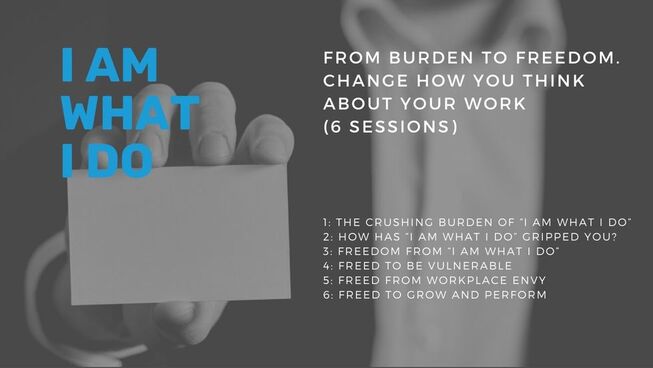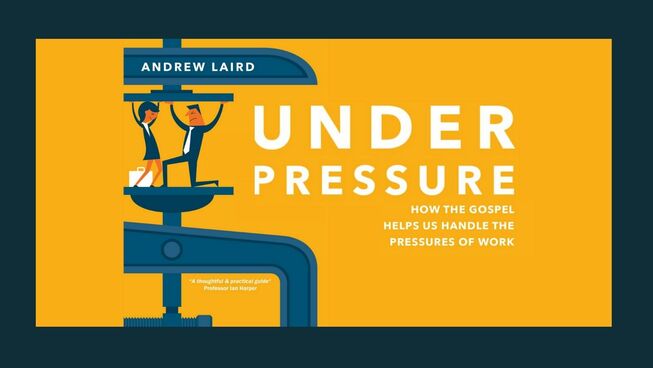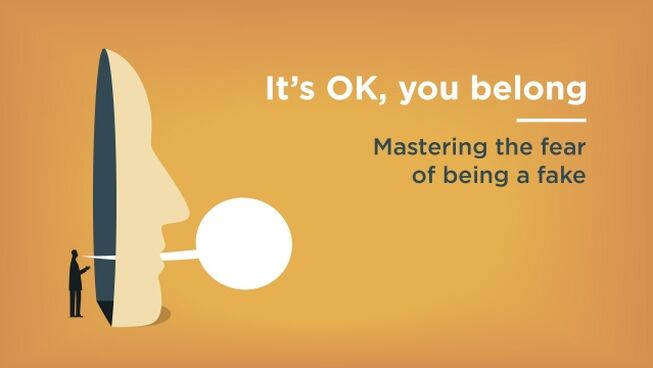Imposter Syndrome

Tina Fey and I have something in common.
Tina has won 7 Emmy awards, 3 Golden Globes. 5 Screen Actor’s Guild Awards and 7 Writers guild awards. She has won these over 2 decades for her work writing and acting for film and tv, including Saturday Night Live, 30 Rock and The Unbreakable Kimmy Schmidt.
I won first prize in a small folk festival once, beating out the other two contestants. Our awards are clearly not what we have in common!
Tina confesses to feeling like she is an imposter, despite her obvious competence as a writer, producer, actress and leader of large teams of writers and actors. Tina describes her experience this way:
“The beauty of the impostor syndrome is you vacillate between extreme egomania and a complete feeling of: ‘I’m a fraud! Oh God, they’re onto me! I’m a fraud!’” (Bennett, 2018)
Imposter syndrome is the feeling that you don’t belong, that you aren’t good enough for whatever it is you are doing. It’s the feeling that your performance is not and probably never will be as good as others. However you can also swing the other direction and think too highly of yourself or work, only to be disappointed when confronted with other people you believe to be superior.
My Story
I first felt the pangs when writing my PhD thesis. Every time I submitted a chapter I was sure that I would be told to leave the program. Even after graduating in 2020 I still feel like some kind of mistake has been made.
While preparing for this article I searched up “Imposter Syndrome” in Spotify to see what podcasts were on the topic. The results ranged from podcasts for aspiring entrepreneurs, psychologists and managers.
The Boss Babe podcast told me I should “believe in myself” and “put myself forward” and “silence my inner critic”. The NY Times article citing Tina Fey recommended staring into my face in a mirror and saying my name.
Cringe.
I didn’t find these solutions very satisfying, so I went to the Bible and Christian books.
If you share my struggles of waiting for someone to point out your deficiencies or work in a highly competitive industry then these tips may help you cope:
Diagnose the Problem
This quick quiz will help you break down why you feel like an imposter
a) Do you feel like a fraud because you are not performing well in your industry, or because of your own perfectionism? Whose standard are you trying to reach?
b) Do you feel like a fraud when you compare yourself or your work to other people and their work?
c) Are you overwhelmed with your current responsibilities? Does your work seem to spread into your home life or do you lie awake worrying about a project when you should be relaxing or sleeping?
The Remedy to Perfectionism
If you answered a) and your issue is perfectionism. Remember that God called you to a holy life that pleases him, not to do everything perfectly on the way. Remember also that it is his work of sanctification that he is doing. The work God is doing in you may not mean that you win accolades in your industry, but will mean you grow in perseverance, character and hope.
“being confident of this, that He who began a good work in you will carry it on to completion until the day of Christ Jesus. (Phillipians 1:9)
The Remedy to Comparison
If you resonated with "b", you are working hard to perform as well or better than those around you. God has called us to be distinct and set apart, at times that may mean we put our faith, church, family and relationship with God before being the biggest success at work. The Bible says not to be conformed to the world and reminds us not to think too high of ourselves. If we are constantly assessing our value against others it leads to envy and competitiveness, which doesn’t make for good relationships. Think of yourself according to the measure of faith God has given you.
…2 Do not be conformed to this world, but be transformed by the renewing of your mind. Then you will be able to test and approve what is the good, pleasing, and perfect will of God. 3For by the grace given me I say to every one of you: Do not think of yourself more highly than you ought, but think of yourself with sober judgment, according to the measure of faith God has given you. (Romans 12:2)
The Remedy to Overwork
If you answered "c", then you may be in a cycle of overwork. In Andrew Laird’s book, Under Pressure: How The Gospel Helps Us Handle The Pressures Of Work, he recommends that we practise “acts of resistance” to prevent us falling into the world’s habits of working too hard.
Andrew breaks these acts of resistance into three parts:
- Practising Humility and Gentleness,
- Saying No
- Switching off from Work.
How will practising humility help me overcome the pressure to overwork?
a strange thing happens when you practice gentleness and humility. You actually begin to feel more restful, relaxed, at peace and calm. Life doesn’t feel so pressured, demanding and exhausting when you learn to live like the one who is ‘gentle and humble’. Being forceful and proud is tiring; being gentle and humble is restful. (Laird, 2017).
What now?
If, like me, you are struggling with strong feelings of imposter syndrome, take some time to reflect on what triggers it. What are you doing when it comes upon you? When you do figure it out, take some time to reflect on what the Bible has to say about your identity and purpose.
If you would like to spend more time exploring the issue of identity and escape from the prison of anxiety, self-doubt and imposter syndrome, try our online course “I am what I do: A theology of Work and Identity”.
References:
Bennett, Jessica, 2018. “How to Overcome ‘Impostor Syndrome’, The New York Times.https://www.nytimes.com/guides/working-womans-handbook/overcome-impostor-syndrome
Laird, Andrew, 2017. “Under pressure: How the Gospel helps us handle the pressures of work”. Green Hills Publishing.
Photo by Pavel Danilyuk: https://www.pexels.com/photo/a-woman-presenting-charts-on-projector-screen-8761527/







